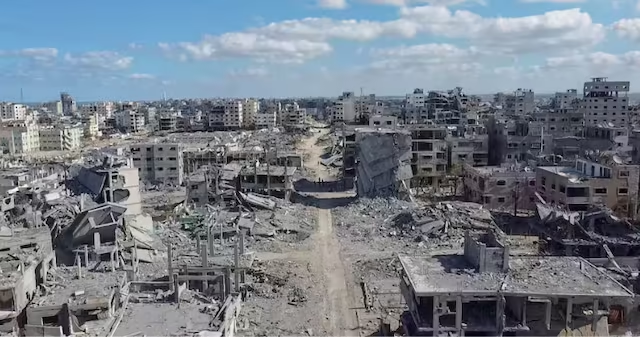
Gaza Ceasefire Violations: Renewed Israeli Strikes on Gaza Threaten Fragile Ceasefire
Fresh Attacks Erupt Despite Ceasefire Agreement
The Israeli military launched new strikes on Gaza on Sunday, according to Israeli media reports and residents in the region, raising fears that the fragile U.S.-mediated ceasefire could collapse. The latest violence comes just days after the ceasefire took effect on October 11, and it marks the most serious test of the truce so far.
Residents in Gaza reported hearing explosions and gunfire across multiple areas. Heavy shelling and airstrikes were reported in Rafah, located in the southern part of the enclave, while witnesses in Abassan, near Khan Younis, also described intense gunfire from Israeli tanks. The situation in southern Gaza remained tense as renewed clashes reignited fears of another prolonged escalation.
Reports of Casualties and Airstrikes
Local health authorities in Gaza confirmed that two Palestinians were killed in an Israeli airstrike in the eastern Jabalia area of northern Gaza. Israeli media reported that the airstrikes in Rafah were in response to attacks on Israeli forces by militants, though the military did not issue an official confirmation.
An Israeli military official stated that Hamas had carried out several assaults against Israeli troops inside Gaza, including a rocket-propelled grenade strike and a sniper attack. The official described these as clear violations of the ceasefire terms, saying, “Both of the incidents happened in an Israeli-controlled area. This is a bold violation of the ceasefire.”
Meanwhile, Hamas maintained that it continues to uphold the truce, accusing Israel of being the one repeatedly breaking the agreement through continued strikes and raids.
Accusations of Ceasefire Violations
The government media office in Gaza claimed that Israel had committed 47 violations since the ceasefire deal was announced, resulting in 38 deaths and 143 injuries. According to its statement, “These violations have ranged from direct shooting at civilians, to deliberate shelling and targeting operations, as well as the arrest of several civilians.”
Hamas spokesperson Izzat Al Risheq reiterated the group’s commitment to the ceasefire, asserting that the movement seeks to maintain calm despite what it calls Israeli aggression. Neither side, however, has acknowledged the full extent of Sunday’s reported strikes.
Rafah Crossing Remains Closed Amid Rising Tensions
The Israeli government announced that the Rafah border crossing between Gaza and Egypt will remain closed until further notice. The crossing, which has been largely shut since May 2024, was expected to reopen as part of the ceasefire agreement to facilitate humanitarian aid. However, renewed hostilities have delayed these efforts.
The ceasefire deal also included commitments to increase humanitarian assistance to Gaza, where hundreds of thousands of residents are suffering from severe food shortages. According to international monitors, famine conditions have been worsening since August.
Continuing Disputes and Economic Fallout
A central dispute between Israel and Hamas concerns the return of the bodies of deceased hostages. Israel has demanded the return of all 28 bodies still unaccounted for, while Hamas has said that recovering them requires specialized equipment due to extensive destruction in Gaza.
The renewed violence has also had economic repercussions. In Tel Aviv, major stock indices dropped nearly two percent on Sunday as investors reacted to growing uncertainty over the ceasefire and regional stability.







